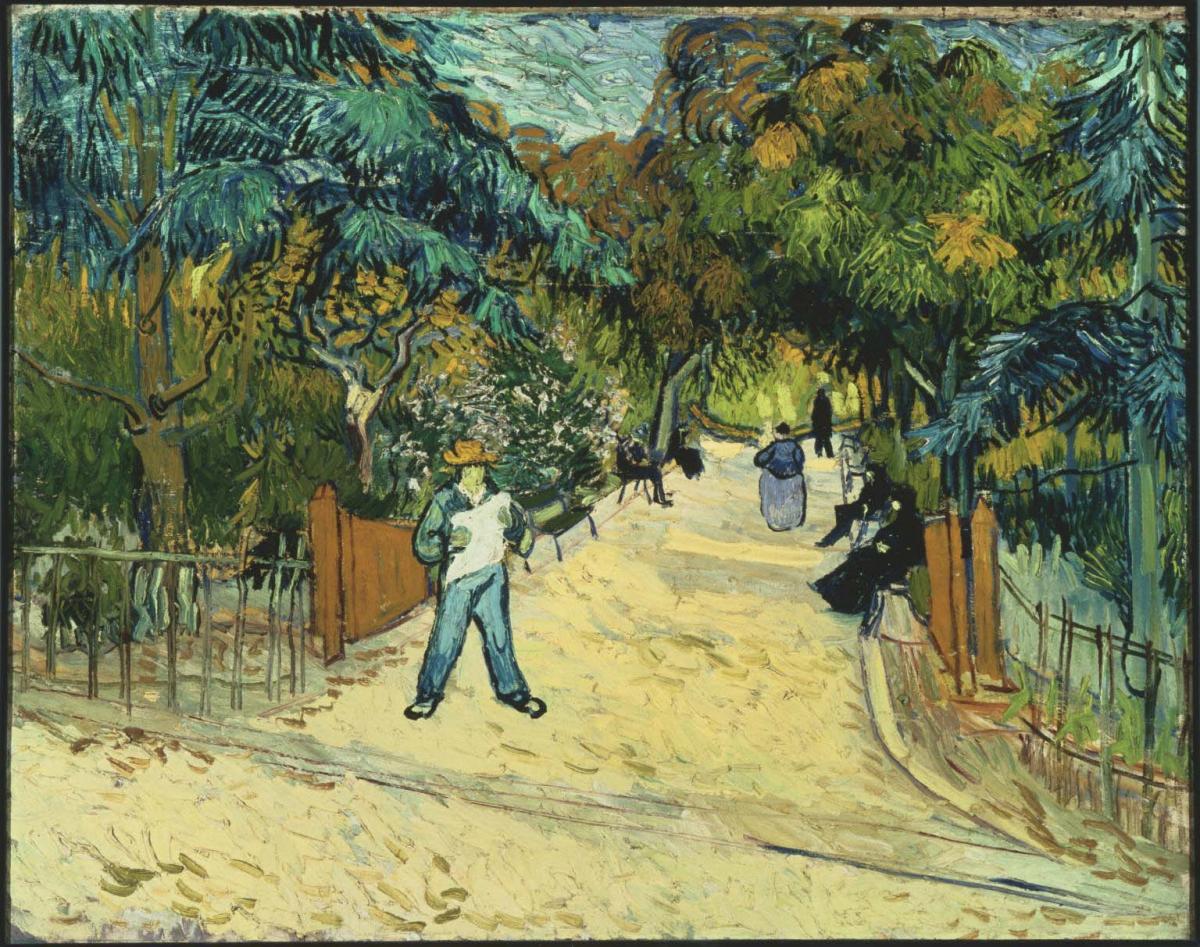Entrance to the Public Gardens in Arles
Vincent van Gogh ( 1888 )

Entrance to the Public Gardens in Arles is one of a series of thematically related paintings, all standard toiles de trente, that Vincent van Gogh executed in the south of France between August and October 1888, a period of intense creativity for him. He was probably referring to this painting when he wrote to his brother Theo around October 10, briefly stating that he has finished “a new size 30 canvas… another garden.”
For months van Gogh had absorbed the warm Mediterranean atmosphere of Arles, and Entrance, remarkable for its strident and saturated colors, its profusion of semi-exotic foliage, and its dazzling, shadowless light, conveys the artist’s newfound delight in the region. “Everywhere and all over the vault of heaven,” he wrote Theo in mid-September, “is a marvelous blue, and a sun sheds a radiance of pure sulphur, and it is soft and as lovely as the combination of heavenly blues and yellows in a Van der Meer of Delft… It absorbs me so much that I let myself go, never thinking of a single rule.” Most of the fifteen paintings van Gogh executed that fall represent the formal aspects of the garden on Place Lamartine, some of which are referred to as the Poet’s Garden series. The Phillips painting represents the more prosaic side of the park, including its entrance, possibly at a point directly opposite van Gogh’s newly rented Yellow House on the north side.
For Duncan Phillips, van Gogh was “by turns Japanese and Gothic,” and his vivid and exultant description of the work conveys much about his own love of expressionism in modern painting: “It is an outcry of the soul, that canvas, a shout of triumph, of joy in the sun, of thanks to God, for a brush and some good pigments wherewith to surpass the light of life itself in intensity. How to catch that pulse in nature, the repetition of certain shapes, the wave-like ripples of the heat, the saturated glare of the soil along the garden walk, the pungent, aromatic fragrance, the scintillant, opulent colors, blues and greens, yellows and oranges in full cry under the sun, the trees of many shapes and textures at the depths at which one could plunge and find shelter in the inner recesses of dark, cool shadow.” It is fitting that Phillips hung Entrance together with the Repentant Saint Peter of El Greco, whose prophecy he believed van Gogh to have fulfilled.